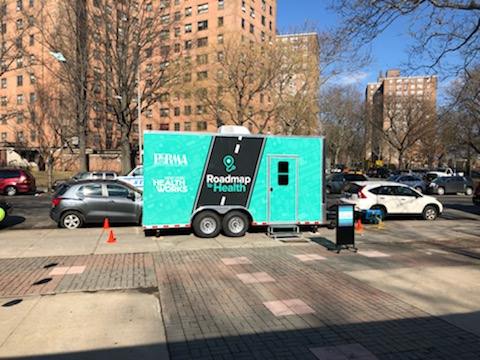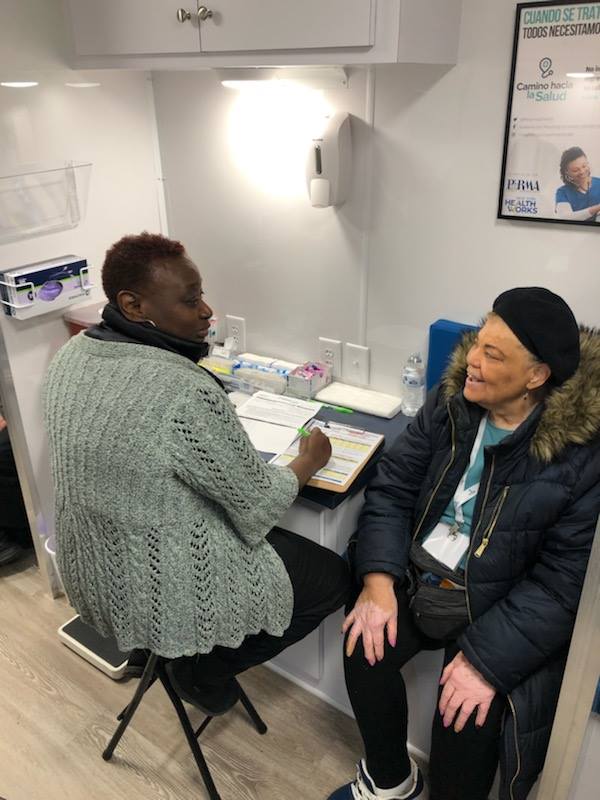For individuals living in low-income communities it can be difficult to get access to health care services. Admittance to the most basic healthcare services can be a struggle due to transportation, getting time off work, lack of insurance, or not enough cash for the co-pay.

To help address this problem across New York City, PHARMA teamed up with the City of New York and U.S. Mobile Health Exams to help underserved residents across in different Burroughs across New York. The goal of this innovative program called Roadmap to Health is to provide free medical assistance to those who need it most.
Telemundo covered the recent event where this program kicked off in January in The Bronx. Click here to watch the full television report of the event. Note that the audio description is in Spanish only.
As you’ll see from the video there was incredible demand by local residents for this service. And this unit will move on to serve other communities, when you’re inside the unit it feels a lot like being in a regular clinic. There’s comfortable seating, privacy, desks, and even photos on the wall to make the overall experience similar to a routine doctor visit as you can see from the photo below.

How Can Mobile Health Units Help Low-Income Communities?
There are many ways medical vehicles can be leveraged to make offering healthcare more convenient to low-income areas. These are a few of the more common uses:
- Hearing: Hearing is something that’s often lost gradually and might not be noticed.
- Health Screening: A regular check-up, especially as you grow older, is one of the most effective ways to catch health issues before they become bigger problems. Screenings that are regularly completed on mobile units include vaccinations like flu shots, blood tests, and ultrasound screenings.
- Drug Testing: This is a common practice at work sites to ensure safety. Drug testing for legal and illegal substances can be conducted.
- Vision Screening: The work of an optometrist can be completed on a mobile unit to ensure the vision of patients is good.
The Bottom Line
Mobile units are an efficient way to deliver healthcare services to people in the communities that need help most. This is also a cost-effective way to provide treatment for providers and a convenient way for patients to receive care. In other words, it’s a total win win.
In the future, we hope more cities and states discover the opportunity that exists for mobile health care solutions in their area to better serve communities across the United States.
